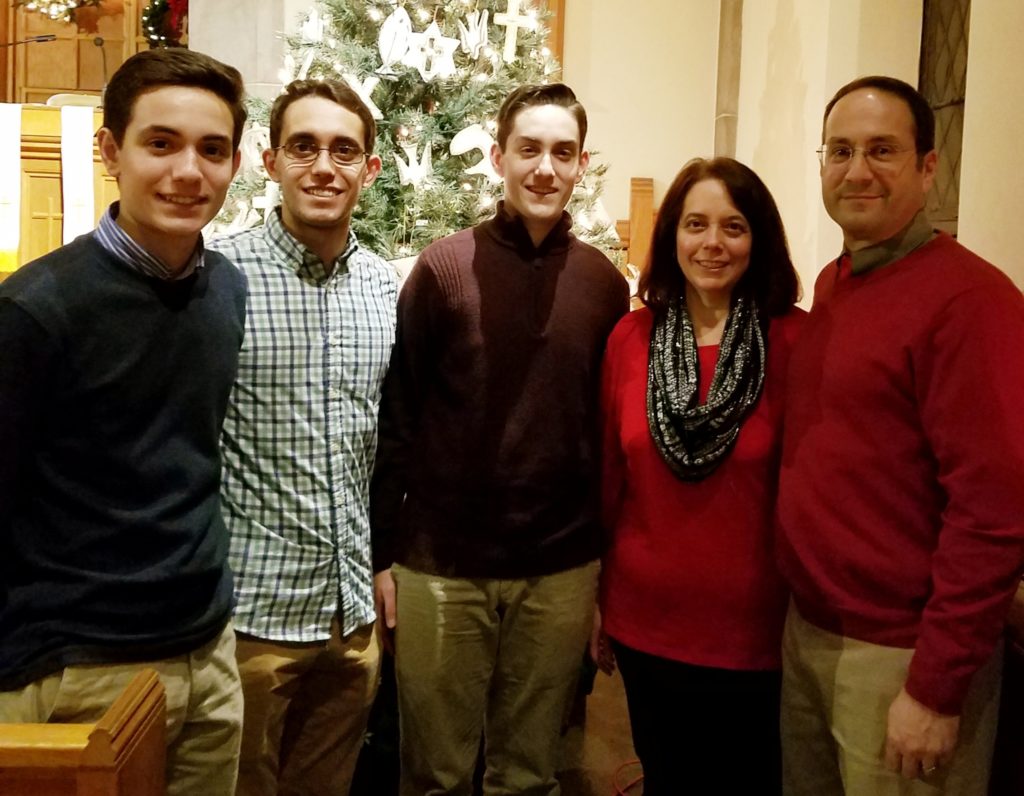
“…and love your neighbor as yourself.”
These are some of the most treasured words in scripture, written on parchment and preserved for all generations.
It’s true that oral traditions have relayed cultural histories from ancient days, but the written word makes it firm, makes it objective – something we can go back to for reference, again and again. It allows us to create a record of thought and ideas, to establish commitments and forge contracts, because we can point to the words and say, “See! It says right here….”
That’s very important in the history of free peoples. It was the basis of Magna Carta – the Great Charter – on which the rights of the English people were enshrined. It was the written word that distinguished objective and impartial law from the arbitrary rules of kings and princes. And so it was that here in America, three simple words, also written on parchment, have similarly enshrined the rule of law as an objective standard for all of us: “We the People…” Those are the opening words to our Constitution, the touchstone that has defined the rights and liberties for people of all political persuasions.
But written words are only accessible to those with the gift of literacy. The fact is, words have meanings, and those meanings convey ideas, and ideas have power to change the world.
The written word allows us to convey ideas far beyond our local communities. Consider the message of an itinerant preacher who taught in Palestine in the days of Augustus Caesar. His messages were the spoken word, but they were preserved in writing by those who followed him, and his teachings spread far beyond his local geography and his specific time in history, so that “the whole world turned upside down” to this very day.
Reading and writing are two sides of the coin of literacy. Writing allows us to record ideas. Reading allows to understand them.
Reading has always been important to me – since my youngest days when I was taught to “sound it out,” thus unlocking a world of adventure and opportunity, of knowledge and exploration, of faith and inspiration. And learning to read increases our independence. Through literacy, we can investigate the biggest questions in life, standing on the shoulders of the giants who went before us and building on their amazing progress – questions like: Who are we? Where do we come from? What is the nature of morality? and many more.
It may already be apparent, but history, philosophy and faith are important to me. So is the ability to figure things out.
As an investment manager, the ability to do research is very important. So it’s important to be able to read the work of analysts, to read the messages in annual reports, and to have the math and financial literacy to understand the numbers that those reports present. Yes, financial literacy is also an important tool in our modern culture that can empower us to seek new opportunities of growth and wealth and understanding. And digital literacy – the ability to navigate the internet and leverage the power of computers to solve problems and share ideas – is no less important.

I’m very fortunate to work for a company that takes pride in investing in the well-being of our neighborhoods. So our leaders don’t just like for us to be involved with organizations that improve the places we live, work and play, they encourage it. When I had the opportunity to invest my employer’s (and my personal) time and treasure with such an organization, Literacy Rochester was my first choice. I love the fact that Literacy Rochester makes it possible for people to share in the same opportunities of inspiration, advancement and knowledge that I have had. I love that Literacy Rochester opens up a world of opportunity for people from other cultures to share in our own by learning English as a Second Language. I love that Literacy Rochester provides a means for me to love my neighbor as I love my own family – and myself – by sharing the various gifts of literacy with others.
I’m very grateful to have the opportunity to serve alongside the many volunteers and staff at Literacy Rochester to empower the lives of our learners through literacy.
Mark Buonaugurio, a senior wealth advisor at Canandaigua National Bank & Trust, is married to his wife, Marylou (a preschool assistant teacher who is actively involved in teaching children to read). Together, they have three sons in or on the verge of college: John (21), Nick (19) and Tim (17). Besides Literacy Rochester, Mark is actively involved with his church’s youth group and enjoys outdoor activities like kayaking, biking and gardening. But reading, he says, is one of his favorite pastimes.
Sharing is caring!
